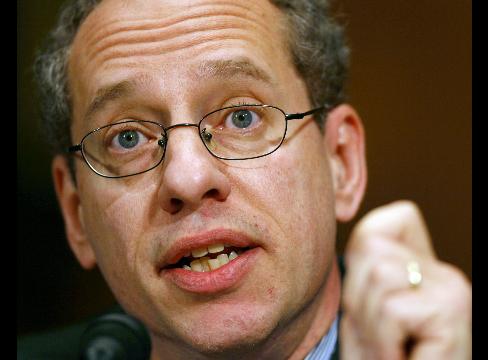
Under federal law, the Federal Trade Commission ("FTC"), led by Chairman Jon Leibowitz (pictured above), has the authority to go after unfair methods of competition and unfair business practices. It remains to be seen whether the regulatory authority of the FTC will be exercised to give this federal agency a role in deciding the hot-button issue of net neutrality.
The FTC can bring antitrust cases based on the venerable Sherman and Clayton Antitrust Acts. But the FTC also has independent authority under 15 USC §45(a), the FTC Act Section 5.
Specifically, under the FTC Act, the agency has the authority to take on unfair trade practices that cause or are likely to cause monetary harm to consumers. But not all "unfair" practices that hurt the consumers in their wallets will be pursued by the FTC. For example, if consumers can reasonably avoid the injury or if the injury is small and is outweighed by benefits (for example, offsetting benefits might include lower prices or a wider availability of products and services) then the FTC is unlikely to initiate an action.
Any FTC move to regulate net neutrality would probably involve the FTC’s own statutory authority. And you could expect claims by the target of any FTC net neutrality action that the benefits they were providing (e.g., better broadband signal for providers willing to pay for that service) and freely available alternatives for consumers (e.g., wired Internet connections that are content neutral) offset any claims of harm.
One recent example of an FTC action against a large tech company might be seen (especially by supporters of net neutrality) as a template for how an FTC net neutrality action might proceed. In December 2009 the FTC brought a case against chip-maker Intel - accusing Intel of a series of threats and rewards to convince PC makers such as Dell, Hewlett-Packard, and IBM to avoid buying chips from the competition. Of special interest from a net neutrality perspective, the FTC also uncovered evidence that Intel had intentionally programed their compiler to slow down the performance of rival chips, so that Intel could tell customers that its own chips performed better than those of the competition. The FTC case against Intel said these practices were unfair - relying on the FTC’s own authority to regulate corporate actions that caused consumers financial harm. The Intel case ended in a settlement announced on Aug. 4th, 2010 that has been widely interpreted as a victory for the FTC.
It remains to be seen whether the settlement in the Intel case has emboldened the FTC. Will Chairman Leibowitz want to press his luck by taking on powerful broadband providers like Verizon who - in the same week that the FTC's settlement with Intel was announced - proposed giving some sites (their own?) preferential (speedier?) treatment on the wireless Internet? Here's a link to a May 9th, 2009 interview where FTC Chairman Jon Leibowitz talked about his approach to regulating the Internet providers - with a discussion of net neutrality starting around 21:10 - 15 months before Verizon set out their proposal for an Internet with tiers.
Here's what we do know: Under current law, the FTC can require broadband providers to disclose how they manage their networks and what speeds they offer. If the FTC finds these practices lead to “unfair methods of competition” - for example, if a broadband provider favors the video content they've produced, while slowing down access to other video content - that might be deemed "unfair competition" and the FTC could start an action against a broadband provider that was not observing net neutrality. On the other hand, without a specific Act of Congress that requires net neutrality on the wireless Internet, Verizon and the other big broadband providers might simply argue that their bias toward their own content on their wireless service is not hidden (notice how Verizon touted their own "transparency" in their August 9th, 2010 proposal) and consumers can always opt out of the wireless services that tier the Internet. There's still dial up.
No comments:
Post a Comment